
The Taste of Japan Begins with “Itadakimasu”
「いただきます」から始まる日本の味
Savor the flavors of Japan. Raise a glass of beer. From the deep artistry of a chef’s hands to a simple rice ball from a convenience store—experience the many tastes of Japan.
日本食に舌鼓。ビールで乾杯。職人の手によって作り出される深い味わいから、コンビニのおにぎりまで。日本の“美味しい”を体験。

The Many Flavors of Japan.
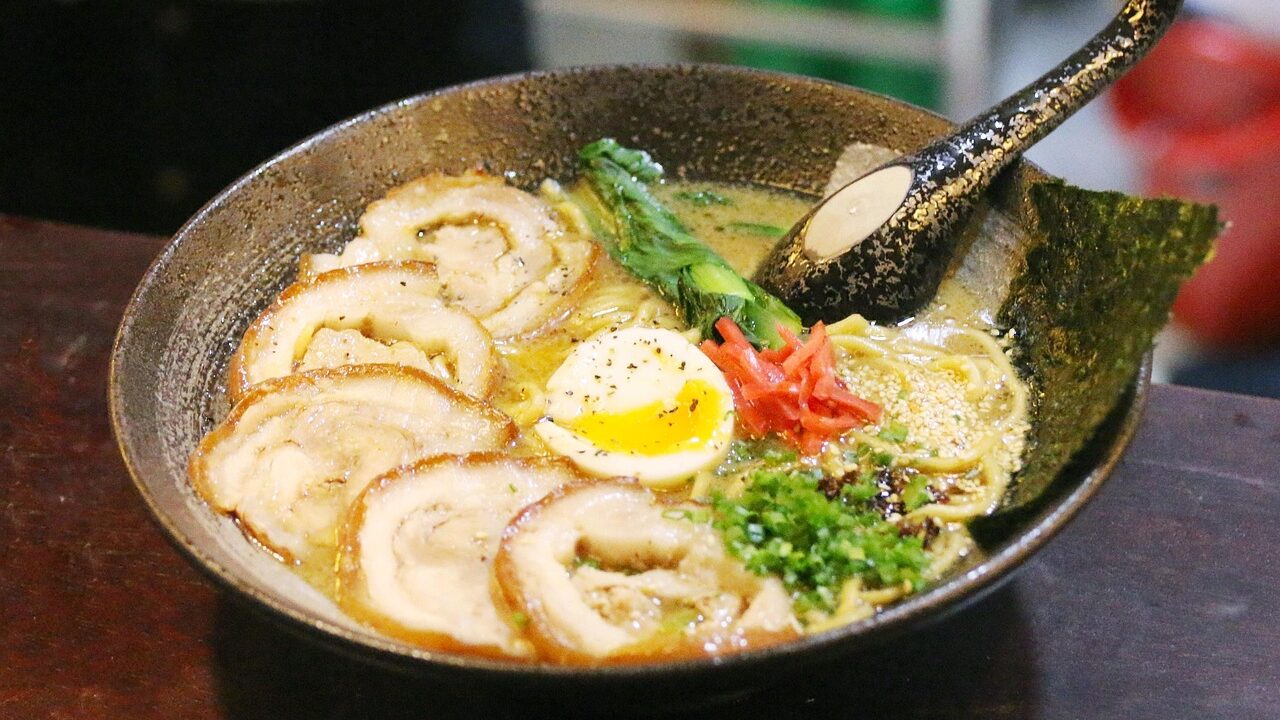
ramen
Your smile is the final touch
その一杯は、あなたの笑顔で出来上がる
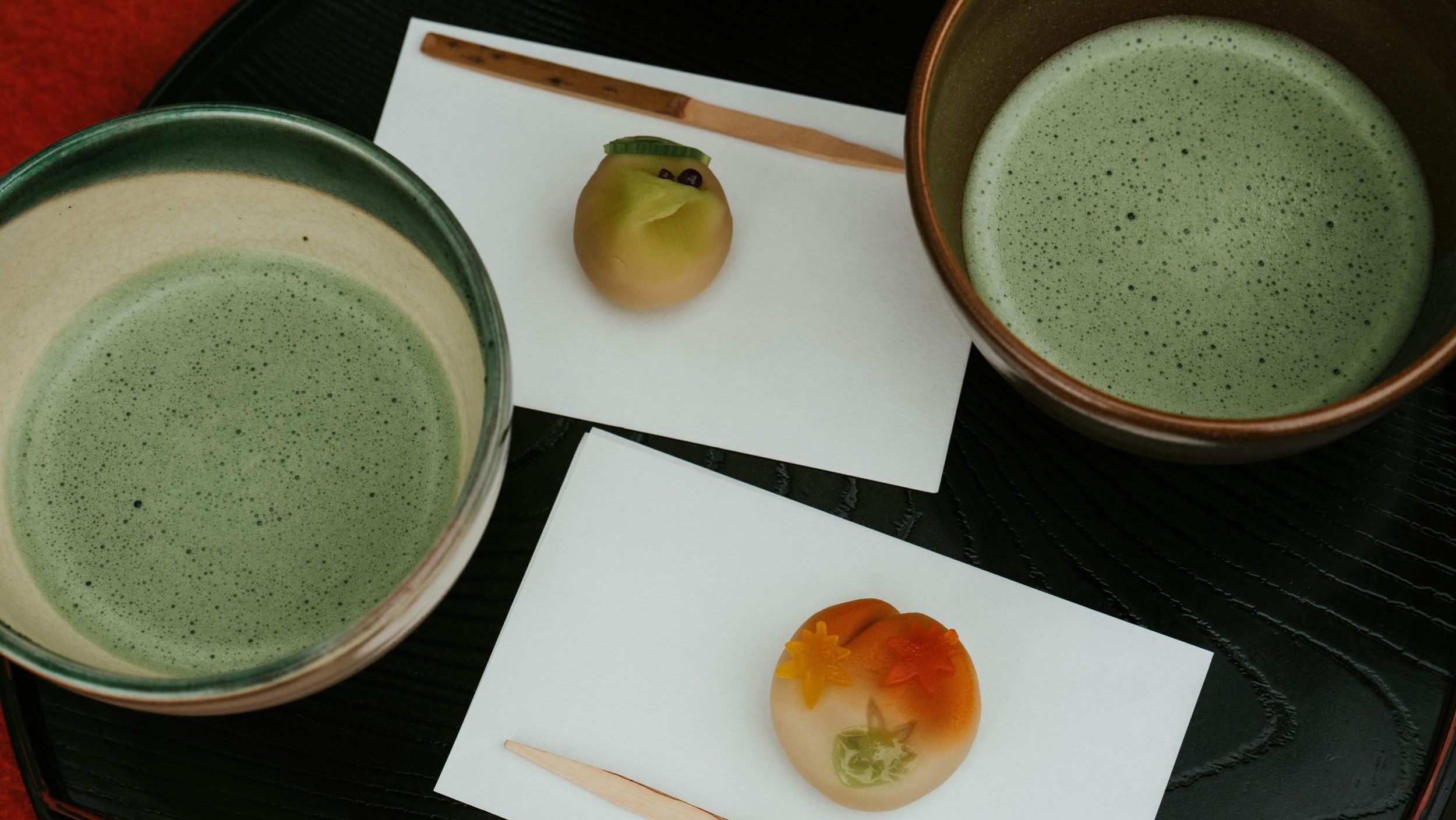
Wagashi
Seasons in sweetness.
甘さに宿る四季の詩。
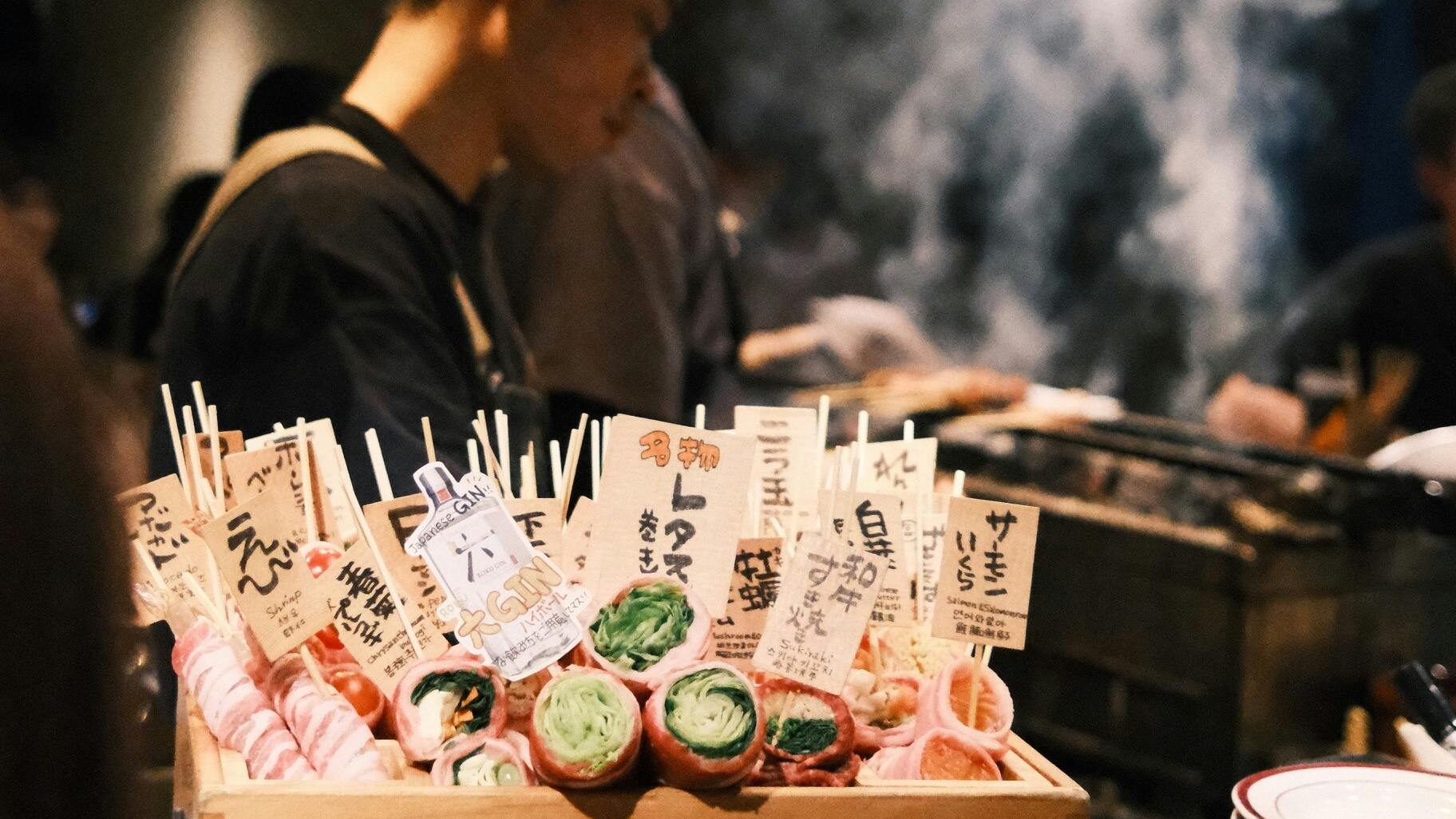
Yakitori
The taste of togetherness.
煙から漂う、味の香りと人のぬくもり。
The Everyday Taste of Japan

Convenience store
Open 24 hours — always here for you.
24時間、いつでもあなたのそばに。

supermarket
Taste Japan in everyday life.
日常の中にある、日本の味

Chain restaurant
In Japan, taste is more than a price.
日本の味は、値段だけじゃない。
The Taste of Chance.

I got lost in a town I’d never been to. A little nervous, I walked without a map — just following my instincts.
初めての街で、迷子になった。少しドキドキしながら、地図も見ずに、自分の感だけを頼りに、彷徨った。
The place that looked delicious… wasn’t. The words didn’t connect, and I stumbled through with a smile. But maybe that’s what makes travel beautiful — the moments that go a little wrong.
美味しそうだと思った店は、案外そうでもなかった。言葉が通じず、少しドキドキした。そんな笑える出来事も、旅の醍醐味だと思う。
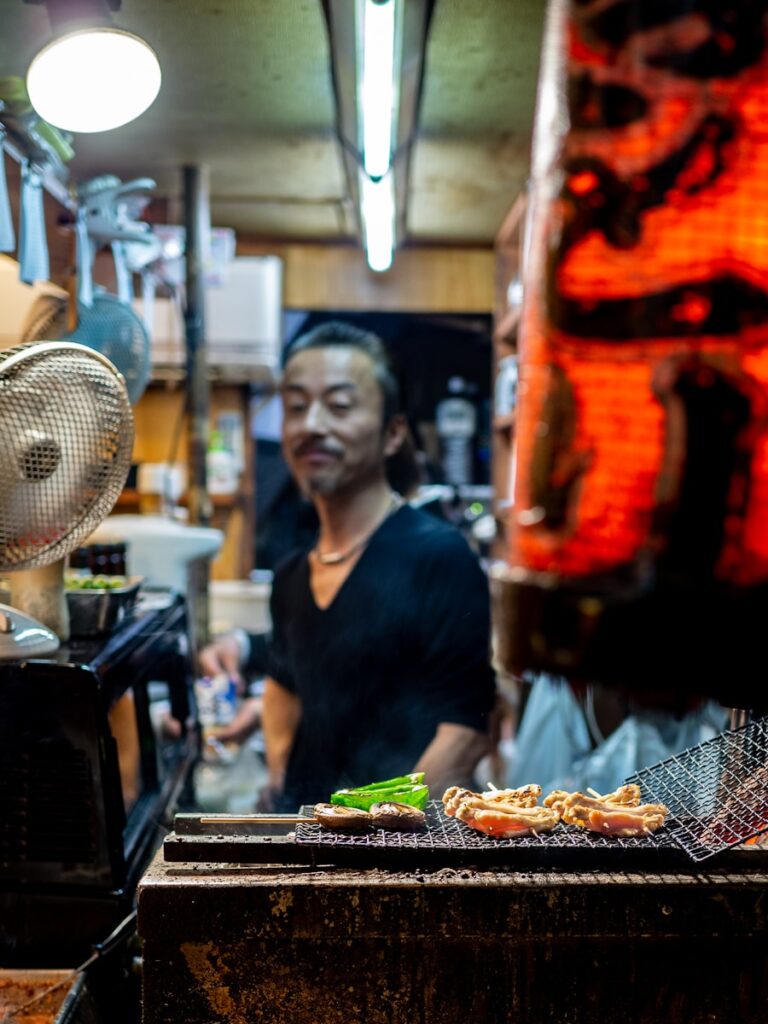
No prices on the menu. No words I understood. Still, somehow, it worked. In moments like these, Japan feels closest. The places you find by accident stay with you the longest. A perfect, planned trip? That’s not how travel really works, is it?
値段が書いてないから、ドキドキした。会話が通じないから、ドキドキした。 でも、意外といけた。こんな瞬間にこそ、日本がいちばん近くに感じられる。 偶然見つけた場所ほど心に残る。 計画した完璧な旅なんて——ありえないでしょ?
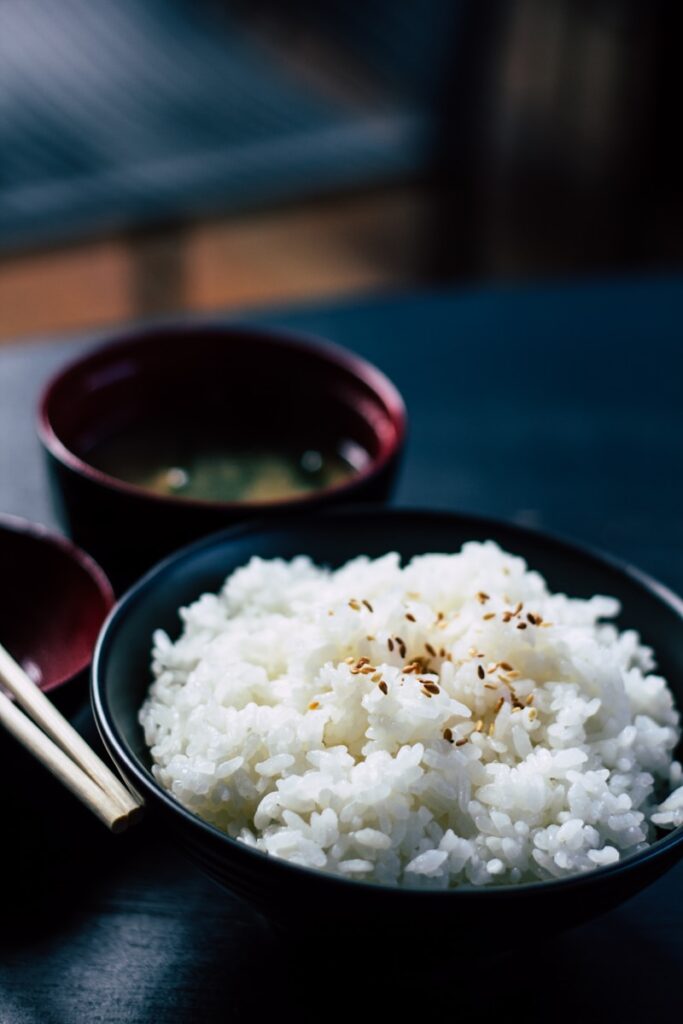
Many Japanese people say “Itadakimasu” before eating. It’s a word that carries gratitude — for the many people and for nature itself that made the meal possible. After eating, they say “Gochisousama deshita,” a phrase that turns that gratitude toward the people who prepared the meal.
日本人の多くは、食事の前に「いただきます」と言います。それは、食事になるまでに関わった多くの人々や、自然への感謝の気持ちが込められた言葉です。食べ終えると、「ごちそうさまでした」と言います。それは、作ってくれた人への感謝に変わる言葉です。

In the past, people used to say, “Seven gods live in each grain of rice.” It was a way to teach gratitude — to never waste even a single grain. Of course, there are no real gods inside the rice. But the saying was born from respect and appreciation for the farmers who grew it.
昔はよく、「一粒のお米には七人の神様が宿る」と言われていました。だからこそ、感謝して、残さないようにと教えられたのです。もちろん、米粒に神様がいるわけではありません。でもその言葉は、農家の人たちへの敬意と感謝から生まれました。
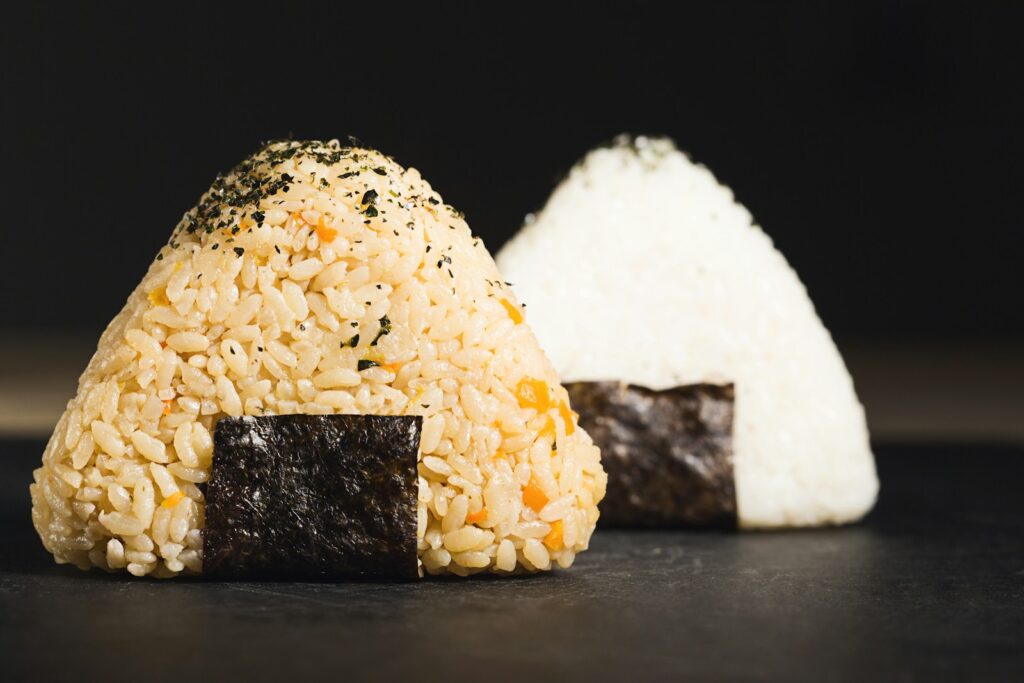
Please, taste the food that carries these feelings. Taste it.
そんな日本人の想いが込められた料理を、どうぞ、味わってみてください。
Every dish in Japan carries a story — of hands, seasons, and small acts of care. Wherever you go, taste connects you to people, and gratitude turns every meal into a quiet blessing.
日本の料理には、ひとつひとつに物語があります。手のぬくもり、季節の移ろい、そして小さな思いやり。どこで食べても、“味”が人をつなぎ、“感謝”が一瞬を特別な時間に変えてくれるのです。